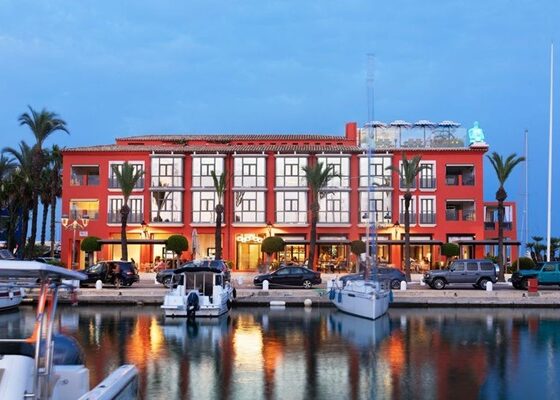The impressive growth in portfolio transactions in the U.K. has resulted in hotel investment zooming up to £3 billion ($3.79 billion) in the first half of the year, up from £990 million ($1,251 million) in the same period in 2023, according to a latest study. The figure in H1 2024 also exceeds last year’s total hotel investments worth £2 billion ($2.52 billion), according to analysis by Knight Frank.
Some of the major deals which helped drive investment in the first six months this year were Blackstone’s £850 million ($1,074.7 million) acquisition of the 33-hotel Village Leisure portfolio, Starwood Capital Group’s £800 million ($1,011.56 million) purchase of 10 Radisson Edwardian Hotels in London; and Landsec’s £400 million ($505.78 million) sale of its hotel portfolio to Ares Management (which was advised by Knight Frank).
Knight Frank’s data revealed that the H1 investment was only 10% below the pre-pandemic figures. So far this year, there has been a predominance of completion of several significant deals.

London attracted a lion’s share of investment activity in H1, with around 70% of investment focused on the capital, bolstered by overseas investors who accounted for acquisitions totaling £1.3 billion ($1.64 billion). Investors from the U.S. have dominated the landscape, accounting for 77% of the overall investment activity in the U.K.
Historically, hotel investment is mostly driven by a combination of portfolio and single asset transactions. However, there’s been a dearth of quality, single asset hotels available for sale in H1, resulting in single asset deals slipping by 19% YOY and transaction volume declining 34%.
The challenging investment market left its mark on the number of development and individual fixed income deals that traded, resulting in portfolio transactions representing nearly 76% of the total H1 transaction volume, compared to 53% in H1 2019, when a similar level of portfolio transactions took place.
“The direction of travel for the sector is positive and the volume of portfolio transactions is evidence that the sector remains attractive. An increase in the quality and the number of hotels seeking to transact is expected, as hotel owners who have extended their investment cycles now seek to realize their exit strategies,” said Henry Jackson, partner and head of hotel agency at Knight Frank. “Where a particular asset meets all the investment criteria, we have seen certain buyers willing to pay full prices for these assets. With a strong pipeline of hotels currently in legals, the Knight Frank Hotels teams expect this momentum to continue and an interest rate cut will serve to further enhance the current optimism for investment in the UK hotel market.”
The outlook for the second half of the year is promising, Knight Frank said, adding that the momentum for investment in the hotel sector is continuing to build and is benefitting from a range of “well capitalized investors.” Distress sales will be substantially lower than previous cycles.
The research added that stakeholders are building pressure on owners to bring assets to the market at deliverable levels which will conclude in a successful and more timely sale.
Investment activity will be stronger in H2 2024, with more hotel portfolios expected to sell and the volume of single asset opportunities coming to the market has also increased (albeit of mixed quality). While some seller’s price expectations are inching closer to buyer’s pricing levels, vendors will have to be patient in achieving their investment goals.
In terms of new hotel developments, the U.K. led in Europe with the highest number of new projects in the pipeline by the end of the first quarter (with 321 projects/45,257 rooms), according to the latest study by Lodging Econometrics. Among European cities, London had the highest pipeline by project count in Q1 with 80 projects/14,987 rooms.








